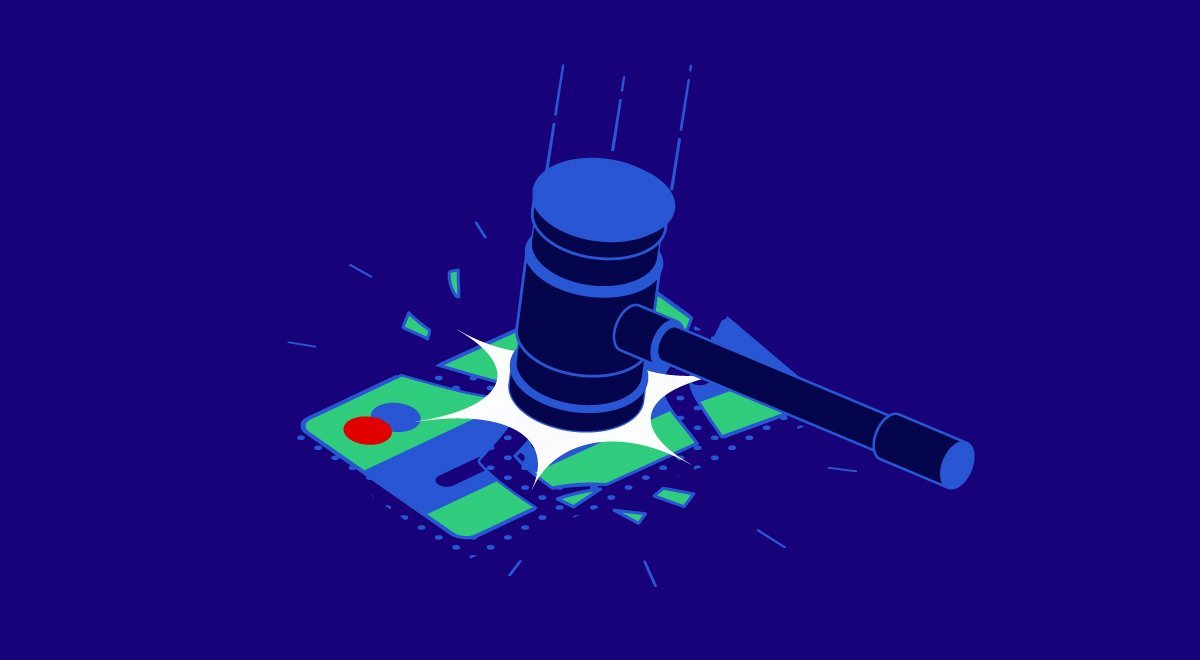Despite the best intentions, it can be easy to fall deeply into a hole of debt. Life circumstances like a job loss or a medical emergency, for example, can leave you desperate for cash, and unable to pay credit card bills.
When such hardship strikes, your credit card debts don’t just disappear. Your creditor still expects you to pay each bill on time, every time. If you don’t, trouble will soon follow.
Initially, your lender may simply charge you penalty fees, but the situation can quickly become more damaging. Is it possible that your credit card company or someone else could turn up the heat by suing you for nonpayment?
Unfortunately, the answer is yes.
Why do credit card companies and others sue for nonpayment?
These companies are in business to make money. When you use a credit card to rack up debt, the lender expects to be paid back. If you miss a single payment, chances are good that you’ll initially be shown some patience. You may just be charged a late fee and be expected to make good on your payment.
If you continue to fail to pay your bill, the debt may be reported to a credit-reporting agency, causing your credit score to take a hit. In addition, your interest rate will likely be raised. But even after a couple of months without paying, you probably won’t end up on the wrong end of a lawsuit.
Things might turn more aggressive if you fail to pay your bill for several months. At that point, the lender may throw in the towel and label your debt a “charge-off”. If they haven’t previously reported your lack of payment to a credit-reporting agency, they will do so now. Your credit score will plummet.
It’s also possible you’ll be sued for the debt at this point. It’s just as likely, though, that the lender will turn to a debt collector in hopes of getting payment from you.
The debt collector has one job: To get you to pay your debts. If you fail to respond to the debt collector’s demands, a lawsuit may very well be at hand.
How should you respond when you’re sued for credit card debt?
If you’re sued for not paying, the Federal Trade Commission urges you to respond to the lawsuit. This is true even if you don’t believe you owe money or you feel that you’re being treated unfairly.
By responding, you put whoever sued you on notice that they will have to prove you owe the debt, as well as the amount they claim you owe. Debt collectors will even have to prove they have a legal right to sue you.
In many cases, your formal response to a lawsuit will need to be in writing. You may also be required to appear in court on a certain day to state your side of the case.
Responding formally to the lawsuit can put you in a more powerful position. The FTC says the simple act of showing up in court can force the lender or the collection agency to recognize that it might have a long process on its hands. That might motivate them to settle with you.
What happens when you ignore credit card debt lawsuits
Don’t ignore the lawsuit and hope it will go away. The case will simply proceed without you. As the FTC notes, you may then lose the case by default. If you lose, you’ll be ordered to pay the debt, and your wages or bank account could be garnished. It is even possible that a lien will be placed on your home.
You may also be ordered to pay the plaintiff’s collection costs, interest costs and attorney’s fees. In the end, it is possible that you could end up owing more than the original debt.
So, be sure to respond. It can be a good idea to hire a lawyer to make sure you’re putting your best foot forward in the case. Nolo notes that studies have found that people who are being sued by debt collectors tend to fare much better if they hire an attorney to help them with the process of responding to a lawsuit.
Can’t afford a lawyer? If your income is low, find a legal aid organization in your community that will take up the case on your behalf.
What can you do to avoid being sued by your credit card company?
The best way to avoid a lawsuit is to pay any overdue credit card bills as soon as you can. If that’s not possible, don’t simply ignore your obligation to pay. Instead, be proactive.
Look for other options that can at least buy you more time to come up with the money to pay your debts. For example, you may be able to transfer the debt to a new credit card offering a 0% balance-transfer option. Or perhaps you can use a home equity line of credit to pay down the credit card debt.
If those options aren’t available, talk to your lender or the debt collector and see if you can work something out. Most prefer to avoid litigation, which can be expensive and time-consuming. So, try to work out a debt repayment plan, or negotiate some type of settlement.
In many cases, creditors are more willing to work with you if they see documented evidence that you are in the midst of a financial hardship that makes it difficult for you to pay debts.
If possible, try to pay the debt in full, even if you can’t meet your original payment date. One way to do this is to arrange conditions that give you more breathing room to pay. For example, your lender might agree to lower the interest rate on the debt, so you have a better chance of paying it down. Or maybe they’ll allow you to skip a few payments while you organize a payment plan.
Dealing with debt collectors on your own
However, in some cases, negotiating a reduction in the debt you owe might be the only way for you to pay off your obligation. Typically, there’s a limit to how much the lender or debt collector will agree to reduce your debt. Some experts say you should expect to pay at least half of the money you owe.
If they agree to reduce the amount you owe, it’s likely to damage your credit score, but that’s better than being sued and ending up in court.
While it’s possible to negotiate new debt repayment terms on your own, it’s not always easy, especially if you have little or no expertise in doing so. It has potential pitfalls that can result in serious repercussions for you. Nolo points out that saying the wrong thing — such as acknowledging the validity of a debt — can restart the clock on the statute of limitations that applies to the debt.
For that reason, many people feel more comfortable hiring an attorney or using a debt settlement company to negotiate on their behalf.
While it is possible that you’ll be sued for debt collection, a lawsuit is something everybody usually wants to avoid. If you are drowning in debt, facing up to reality and actively working toward a solution will almost always yield better results, and keep you out of the courtroom.
At National Debt Relief, we take pride in empowering people to regain their financial stability through our proven debt relief program. Contact us and talk to a financial expert who will work with you to find the best option to settle your debt and help you achieve financial independence.





